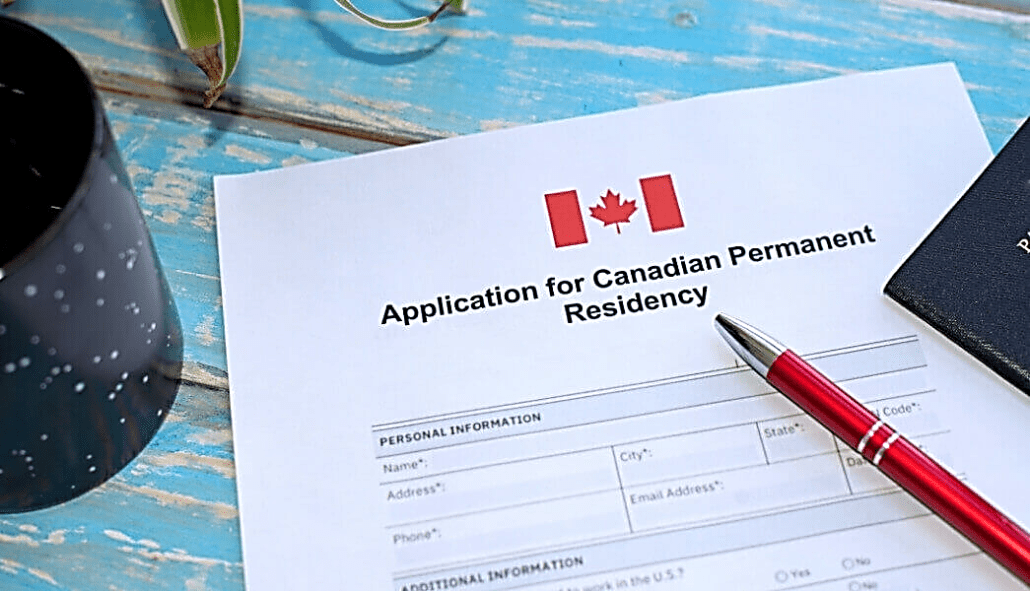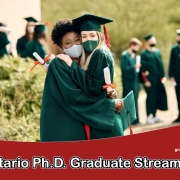Study in Canada 2024-2025 + Scholarships
Estimated reading time: 21 minutes
Canada is one of the top countries for international students to continue their education there. The main reasons Canada is unique compared to other popular countries are its high academic standards, reasonable tuition costs, multicultural environment, and high job opportunities.For these reasons, many people are intent to study in Canada.
The popularity of Canada is visible if looking at the number of international students pursuing their degrees in this country; Over 70,000 international students were enrolled in all levels of study.

Why study in Canada? (Update 2024)
Let’s look at the primary reasons why international students should select Canada for their education in 2024-2025.
1- Vibrant and Beautiful cities to live in
Canada is home to many of the best cities in the world, including Toronto, one of the most diverse cities in the world, Vancouver, which is bordered by the Pacific and known for its inventive pizzas that would make a Neapolitan weep with envy, Winnipeg, which is home to renowned art galleries and fringe festivals, Montreal, as one of the most suitable places for international students due to affordable housing, various festivals, multicultural atmosphere, and European style, and Calgary which is a cosmopolitan Alberta city recognized as Canada’s oil hub.
2- Quality education with world-class universities
The flexibility, diversity, and research of the Canadian educational system are well-known. Notably, 26 Canadian institutions have been listed among the top 1000 universities worldwide based on the QS World Ranking of 2023. For instance, the top three institutions in Canada, McGill University, University of Toronto, and University of British Colombia, were ranked 31st,34th, and 47th, respectively, on QS Ranking.
A degree from a Canadian university opens doors and unlocks limitless opportunities.
Additionally, 40% of the faculty members in Canada have at least one international Degree, which helps them bring a global perspective to the classroom. Graduates from the top Canadian universities are known for their critical thinking, research, and leadership abilities.
Furthermore, with 96 public institutions offering 15,000 study options, Canada offers both great quality and selection, and according to students and graduates, Canada is the second-most hospitable nation for international students.
3- Easy and straightforward process of admission
Applying for university admission at both undergraduate and graduate levels is pretty straightforward. For example, Bachelor’s and course-based master’s students have to apply through a university portal and submit all the required documents (CV, SOP, Recommendation letter, English test, transcripts, and degree certificate). The admission committee decides the final decision, including some of the experienced and young experts or professors. Research students (MSc or Ph.D.) must upload the above documents after finding a supervisor.
4- Hospitable attitude
Immigration, Refugees and Citizenship Canada (IRCC) has established economic immigration initiatives to assist international students in staying in the nation after they complete their studies because it values them as highly qualified immigrants.
Don’t worry once you graduate from the university. International students can work in Canada for up to three years after graduation and get a Post-Graduation Work Permit (PGWP) which exempts them from Labor Market Impact Assessment (LMIA) criteria. Therefore, hiring them is made simpler for Canadian businesses. Some international students can get a comprehensive variety of services through the Study and Stay Program in Atlantic Canada to assist in their full integration into Canadian society
5- Part-time job opportunity
The Canadian government provides international students with a range of financial assistance and support options. In addition, the student visa allows for 20 hours per week of employment while studying in Canada.
6- Smart Permanent residency for international students and experts worldwide
6-1: Express Entry: Express Entry is a merit-based immigration system that compares all qualified applicants and invites the top-scoring applicants to apply for Canadian permanent resident status. Age, education, language ability, job experience, and other characteristics are taken into consideration when ranking candidates.
The Express Entry immigration selection method allows individuals and families from all around the globe to move to Canada in only a few months. Express Entry, which was first implemented in 2015, has grown to become one of the most widely used immigration systems worldwide and the major source of skilled worker immigration to Canada.
6-2: International students (PGWP): Students who have graduated from recognized Canadian educational institutions are eligible to apply for a post-graduate work permit, also known as the PGWPP (Post-Graduate Work Permit Program), which gives them access to an open work permit that will allow them to gain valuable work experience in Canada.
After receiving your Degree, you can apply for a PGWP to begin obtaining relevant Canadian work experience. You might be qualified for permanent residency once you’ve earned your Degree and gained at least a year of work experience in Canada. In this situation, applying through Express Entry for the Canadian Experience Class (CEC) is typically the best option for graduates. With your CRS score as the basis, you will be entered into an online lottery to select applicants for Canada PR.

6- Excellent job opportunities
There are many chances for students who graduate with job-ready skills because Canada is witnessing significant job creation rates and a severe labor shortage in several fields.
According to a report released by Statistics Canada late last year, the number of job openings in Canada hit an all-time high of 912,600 in the third quarter of 2024, as firms and workers continued to respond to lessening public health constraints and rapidly-evolving economic conditions.
Universities in Canada: Highlights
| Criteria | Description |
| Course language | French, English |
| Average tuition & fees | CAD 20,000-CAD 30,000 per year |
| Average cost of living | CAD 12,000-CAD 20,000 |
| Funding sources for students | Scholarships, Grants, Bursaries, and Part-Time Jobs |
| Language Test | TOEFL, GRE, IELTS, PTE, GMAT, etc. |
| Intake period | Three times a year- Fall, Spring, and Summer |
| Visa type | Study permit, work permit |
| Degree type | Undergraduate (Bachelor’s) Degree, Graduate (Master’s and Ph.D.) Degree, Associate’s Degree |
| Top cities | Montreal, Vancouver, Toronto, Ottawa, Quebec, Calgary, Waterloo |
| Top programs | Engineering, Business & Finance, Computer & IT Engineering, Media & Journalism, Health & Medicine, Science |

Educational System in Canada (2024-2025)
The top educational institutions are both publicly financed and privately sponsored in Canada’s educational system. More than 10,000 graduate and undergraduate programs are offered at 213 public colleges and 223 public and private universities. The following degrees are available from Canadian universities for international students to study:
1-Associate’s Degree: An associate’s Degree in Canada is another type of undergraduate Degree that necessitates one to two years of study in a particular subject area. However, these programs differ greatly between institutions and between provinces.
2-Bachelor’s Degree: In Canada, candidates for a bachelor’s Degree compete in the 12th class. Although the province and course type determine the program’s length. However, four years is the typical length of an undergraduate degree in Canada.
3-Master’s Degree: Master’s degrees in Canada divide into several types, including Master of Science, Master of Arts, Master of Laws (LLM), Master of Business Administration (MBA), and Master of Library Science (MLS, MLIS, MSLS). A Master’s Degree in Canada for international students would take 2-3 years in total.
4-PhD or Doctorate Degree: A Ph.D. Degree in Canada is a research-level program. This requires 3-6 years to acquire this specialized post-graduate Degree.
The following is a detailed overview of the various higher education institutions to study in Canada:
| Institution type | Highlights |
| College | 1-Give instruction in practical or academic domains of employment. 2-Lower tuition & fees than universities. 3- Lower education quality compared to universities (in most cases) 4-Lower chances of visa approval for international students than universities. |
| University | 1-Offer quality undergraduate and graduate degrees. 2-Higher tuition & fees than colleges. 3- Lower education quality compared to colleges (in most cases) 4-Higher chances of visa approval for international students than in colleges |
Type of credit in Canada
The same credit system is used by all Canadian universities. The final results will be evaluated based on how many credits students have made during the class sessions.
The grade point average (GPA), which is a scale from 0.0 to 4.0, is used by the Canadian educational system to grade students. These are determined for a semester based on the grades received in each subject and the number of credits acquired during that semester. F and A grades show 0 and 4 out of 4, respectively.
Bachelor’s Degree: Bachelor’s students need 3 to 5 credits in each course. A Bachelor’s degree typically takes between 90 and 120 credits to complete within 4 to 5 years.
Master’s Degree: Master’s students require to take 3 to 4 credits in each course. They would need 30 credits in total for graduation.
Top universities in Canada (Update 2024)
| Institution name | City located | QS ranking worldwide 2024 | Average tuition & fees | |
| University of Toronto | Toronto | 26 | CAD 28,000 – 60,000 | |
| McGill University | Montreal | 27 | CAD 20,000 – 60,000 | |
| University of British Columbia | Vancouver | 46 | CAD 30,000 – 60,000 | |
| Université de Montréal | Montreal | 111 | CAD 20,000 – 38,000 | |
| University of Alberta | Alberta | 126 | CAD 12,000 – 50,000 | |
| McMaster University | Hamilton | 140 | CAD 24,000 – 58,000 | |
| University of Waterloo | Waterloo | 149 | CAD 28,000 – 60,000 | |
| Western University | London | 170 | CAD 20,000 – 55,000 | |
| University of Ottawa | Ottawa | 230 | CAD 15,000 – 35,000 | |
| University of Calgary | Calgary | 235 | CAD 16,000 – 40,000 |
Top courses in Canada for international students
There are many different courses available at Canadian universities. They all help you advance professionally and improve the quality of your life. However, several are recognized by international students as being among the best courses to take in Canada. The top programs in Canada for international students include:
- Finance and Business
- Information technology engineering and computer science
- Medical Care and Health
- Science in Agriculture and Forestry
- Journalism and the media
- Law
- Economics
The most common courses selected by students to study in Canada are as follows:
| Course | Duration | Average tuition & fees |
| MSc Nursing | 2 years | CAD 45,000/year |
| BSc Nursing | 2-4 years | CAD 35,000/ year |
| MEng Aerospace and Engineering | 2-3 years | CAD 40,000/ year |
| MBA | 1-2 years | CAD 40,000/ year |
| LLM | 1-2 years | CAD 20,000/ year |
| MA Media Studies | 2 years | CAD 36,000/ year |
Admission Process for studying in Canada (2024-2025)
For Indian and international students, the application procedure to study in Canada can be finished online. The following describes a step-by-step procedure for admission to Canada:
- Choose the course you wish to take, then look for the top universities that offer it on QS, THE, US News etc.
- Once the institutions have been narrowed down, visit each institution’s official website to learn more about the prerequisites and eligibility requirements.
- The application procedure should begin. Complete the application form and upload all necessary paperwork. Pay the application fee that is necessary.
- Await the return of the universities. You’ll receive a letter of acceptance once you’ve been chosen. You will require it when you apply for your student visa.

University Admissions Requirements for international students in Canada (2024-2025)
Every Canadian university has a certain requirement. The table below presents the summarized information for all the undergraduate and graduate levels:
| Level | Requirements |
| Associate’s Degree | -Transcript from a high school or its equivalent with a grade average of C, or 2.0 on a scale of 4.33. – IELTS – overall score of 6.5 or above – TOEFL iBT – overall score of 60 |
| Bachelor’s Degree | -12th-grade diploma with a minimum of 65% – IELTS – overall score of 6.5 or above – TOEFL iBT – overall score of 80-100 -SAT/ ACT scores |
| Master’s Degree | -Bachelor’s Degree with a CGPA of at least 7.0 to 7.5 – IELTS – overall score of 6.5 or above – TOEFL iBT – overall score of 80-100 – CV, Recommendation letters, SOP – GRE/GMAT scores (if required) |
| PhD Degree | -Master’s Degree in the related field – IELTS – overall score of 6.5 or above – TOEFL iBT – overall score of 90-100 – CV, Recommendation letters, SOP – GRE/GMAT scores (if required) |
Cost of living-Tuition & Fees to study in Canada (Update2024)
Depending on the program, institution, and lifestyle of the student selected will affect the cost of living for studying in Canada.
| Degree Type | Average yearly tuition fee |
| Bachelor’s | CAD 10,000 – 40,000 |
| Master’s | CAD 15,000 – 55,000 |
Cost of living for international students (Update 2024)
Your lifestyle will determine how much it will cost you to live in Canada as an international student. Following is a discussion of some of the most significant aspects of the cost of living in Canada for international students:
| Criteria | Average cost per year |
| Food | CAD 7,000 |
| Shared Apartment Off-campus | CAD 10,000 |
| On-campus Accommodation | CAD 9,000 |
| Transportation | CAD 2,000 |
| Books and supplies | CAD 1,200 |
| Miscellaneous | CAD 3,500 |

Top cities for students in Canada (2024-2025)
The standard of living a city provides to its international students can serve as a benchmark for any best city to study in Canada. Three of the advantages of studying in the top cities are listed below:
2-All of Canada’s top universities provide students with a well-organized way of life. Whether it’s by giving you discounted student rates or by offering you subsidized public transportation.
3-Quality of life and people’s education
| City | Average cost of living for students per year |
| Montreal | CAD 15,000- CAD 20,000 |
| Ottawa | CAD 16,000- CAD 20,000 |
| Vancouver | CAD 20,000- CAD 30,000 |
| Toronto | CAD 22,000- CAD 30,000 |
| Quebec City | CAD 17,000- CAD 25,000 |
Top Scholarships for international students to study in Canada (Update 2024)
For international students who desire to attend Canadian universities, there are over 800 scholarships available. The scholarships in Canada include a monthly allowance, tuition assistance, housing, travel expenses, and health insurance. They are excellent methods of paying for your education in Canada. Below are some of the top scholarships in Canada, particularly for international students.

1- Canadian Francophonie Scholarship(CFSP)
The Canadian Francophonie Scholarship Program (CFSP) is a scholarship initiative created to strengthen institutional capabilities by educating employed citizens from SOME La Francophonie’s nations. The program’s long-term objective is to encourage the development of recipient nations by emphasizing developing trainers’ skills and enhancing the expertise of faculty and staff at colleges and universities in the fields of education and research.
2- Canadian Commonwealth Scholarship and Fellowship Plan
An international program called the Commonwealth Scholarship and Fellowship provides scholarships and fellowships to residents of other Commonwealth nations. Over 26,000 people have benefited from the program since its founding at the first Commonwealth Education Conference in 1959.
3- National Research Council of Canada (NRCC)
This is one of the most well-known scholarships which is offered to international and native students, primarily in Science and Engineering programs. Even university professors are eligible to apply for their academic projects. you can read more about this scholarship at this link.
4- Shastri Indo-Canadian Institute:
This provides a variety of scholarships for grad students as well as those pursuing post-doctoral studies; it offers financial aid to students interested in research and training fellowships.
5- Canada Graduate Scholarship-Master’s Program (CGS M):
International students with permanent residence status are eligible to apply for funding to assist their research through this program.
6- University of Waterloo Scholarships
7- Université de Montréal Scholarships
8- University Canada West Scholarships
9- McGill University Scholarships
10-University of Windsor:
Graduate research-based students are automatically eligible to receive GA (graduate assistantship)
| Scholarship | Who is eligible? | Benefit/Amount |
| Canadian Francophonie Scholarship | Fully funded graduate scholarships for international students for four years. | Waives tuition fees, book supplies, incidental fees, and rent. Up to CAD 28,000/year |
| National Research Council of Canada (NRCC) | Students seeking master’s and doctoral degrees in engineering or natural science. | Up to CAD 36,000/year |
| University of Waterloo Scholarships | Undergraduate, graduate and doctoral studies are all eligible for this award. | Up to CAD 12,000/year |
| Université de Montréal Scholarships | International students enrolling in undergraduate, graduate, and doctoral programs. | Up to CAD 28,000/year |
| University Canada West Scholarships | For undergraduate and graduate programs | CAD 10,000/year for a master’s CAD 20,000/year for Bachelor’s |
| McGill University Scholarships | Undergraduate, graduate, and Ph.D. students can apply for these fully supported scholarships. | Up to CAD 9,000/Semester |
| University of Windsor | MASc and Ph.D. students | Up to CAD 6,000/Semester |
Job opportunities in Canada for international students (Update 2024)
A part-time job is easy to find in Canada for international students with valid study permits. International students are allowed to work as many hours as they want on-campus (inside university) along with 20 hours of work off-campus (outside of universities). International students need to make sure that they can meet the following criteria before getting a part-time job:
- Students must be enrolled in a full-time post-secondary program
- Students must be enrolled in a Designated Learning Institution (DLI)
- Students must be enrolled in a minimum six-month program for academic, vocational, or professional training
- A valid passport and study permit
- A Social Insurance Number (SIN)

Highest paying part-time jobs for international students in Canada 2024
| Job | Average income per hour |
| Tutor | CAD 17-20 |
| Freelancer | CAD 20-26 |
| Web designer | CAD 20-23 |
| Salesperson | CAD 20-23 |
| Dogwalker | CAD 14-18 |
| Cashier | CAD 17-20 |
| Uber driver | CAD 16-22 |
| Delivery driver | CAD 19-22 |
| Barista | CAD 15-17 |
| Server / bartender | CAD 15-17 |
Job opportunities after studying in Canada
Canada is a large country, and there have been more career chances there throughout the previous years. Note that specialization area, experience, skill levels, city, and company level vary the annual income of the jobs. Here is a short glance at the top industries in Canada that are hiring international students after their master’s Degree:
| Specialization area | Yearly income |
| Engineering | CAD 65,000-75,000 |
| Data Science/Statistics | CAD 70,000-80,000 |
| Management | CAD 75,000-85,000 |
| Healthcare | CAD 90,000-110,000 |

Temporary visa in Canada for international students after their graduation
Following the end of the study, international students have 180 days to apply for a work visa in Canada, according to the Canadian government. International students must meet the following criteria in order to be qualified for a Post-Graduation Work Permit (PGWP):
1-A degree, diploma, or certificate program that lasted at least eight months must have been successfully completed by you.
2-You must have attended class full-time, without taking a break, during each academic term.
Permanent residency for international students in Canada (Update 2024)
International students can qualify for Canadian Permanent Residence status after three years of residence and employment under a work visa. You will come under the Federal Skilled Worker Program and be given the green light to apply for permanent residence in Canada if a Canadian business extends you a permanent job offer.
It’s usually a good idea to choose to study abroad in Canada. People come to this lovely nation to study and work from all around the world. Many people who want to study abroad choose Canada because of its famous colleges, large employment market, and reasonable cost of living.
Frequently Asked Questions: Study in Canada (Update 2024)
Canadian universities accept IELTS, TOEFL, and CAE Advanced as evidence of English language competency. However, confirming the “eligibility requirements” at the universities you have narrowed down is essential.
In order to obtain a study permit in Canada, you will primarily need a valid passport that will remain valid until the end of your course, your acceptance letter from your college or university, documentation of your educational background, a visa application form, visa application fee, and biometric fee.
According to various statistics, Montreal, Toronto, Vancouver, Calgary, and Hamilton are among Canada’s top cities and sometimes North America.
International students are allowed to work as many hours as they want on-campus (inside university) along with 20 hours of work off-campus (outside of universities)
The cost of tuition ranges from CAD 15,000 to CAD 30,000 per year, and the average monthly cost of living should be between CAD 800 and CAD 1,500 per person.
It lasts four years at the majority of universities. If students participate in a co-op or other internship programs, up to five years may be added. The timeline is sometimes three years for students studying in Quebec.
A single student (without a spouse) must provide proof of tuition + $12,000 ($1,000 per month) for a full academic year. Depending on the student’s age, this sum may change in Quebec.
Your visa may be rejected if you submit incomplete applications or documents. Your application may also be rejected if you cannot provide sufficient proof of money or reasons to return to your own country.
The idea is that Canadian visas are simpler to obtain than US visas because they do not require a face-to-face interview. Additionally, Canada has very lax immigration laws and a very open door policy for immigrants, so it is perceived to be easier to obtain Canadian visas overall.
if you don’t plan to attend school in Quebec. If the Quebec program you are enrolled in is shorter than six months long. If you wish to prolong your stay, you are advised to contact the institution.
Having ties to their home country and documentation that they intend to depart Canada after their studies are through.
Possesses a valid passport, travel document, and proof of financial assistance.
Students must also demonstrate that they have no history of criminal activity.
Yes. The research-based programs require 2-3 recommendation letters from your previous academic or professional supervisors
Life sciences, computer science, biological science, food technology, and chemistry are a few of the industries in significant demand. Numerous MBA programs in Canada are among the best in the world.
You can get the latest information and changes on IRCC Website (click here)
You must pay tuition for the first year of your studies after getting an acceptance letter from a school. However, the Canadian government needs proof that you have the resources to finish your Degree. Therefore, you need a sponsor whose records demonstrate that you have enough money to support yourself while you’re in Canada.
1-University application fee
2-Tuition fees to pay for the first year of your Degree as specified in the acceptance letter
3-Score reporting fees for entrance exams such as GRE, TOEFL, and IELTS
4-Buying a GIC (Guaranteed Investment Certificate) to demonstrate that you have the money for your living expenditures
5-Proof of money with your sponsor to demonstrate that you will be able to pay for the entirety of your studies in Canada (apart from the first year).
6-Visa processing costs to obtain a work permit, a study permit, or both as necessary.
Your spouse or common-law partner and any dependent children can travel with you to Canada. They could be qualified for a visitor visa, a work or study permit, or both. You must submit their applications online when you apply for your study permit.
18 years of age-You must be at least 18 years old to be eligible for a student visa in Canada.
Choose six to eight professors from various colleges who are experts in the field you are most interested in. Study the professors’ most recent and ongoing projects in great detail. Verify the professors’ grant status and willingness to accept new graduate students. It is advised against emailing a Professor unless a call for prospective students is stated on the website.
Look for online tutorials explaining how to summarise a research paper by outlining its strong and weak features. Sending this will improve your prospects and provide the professors with some reassurance that you are interested and prepared to commit to taking the stage. Wait a few weeks, and then write the Professor a polite reminder if they don’t respond to you.
The application window typically runs from mid-October 2024 to late-January 2025 for Fall 2024. You must submit your application as soon as possible if you hope to be accepted. From the final week of December 2024 to the first week of January 2025, the professors will be on vacation.
Depending on the industry and type of work you’ll be doing. But if you do, it is advised that you use the time to advance your English language abilities.
It depends on the province in which you intend to live; if you speak English well, you won’t have any trouble living and working in either the English or the French provinces, but if you speak either language, it might be a problem.
Of course, accordingly to your earnings.
Normally the first thing you will need to do before landing a job is get a bank account and a phone number that insinuates that you will get paid via bank transfers. However, it is possible for some regular job types to also pay in cash.








Leave a Reply
Want to join the discussion?Feel free to contribute!